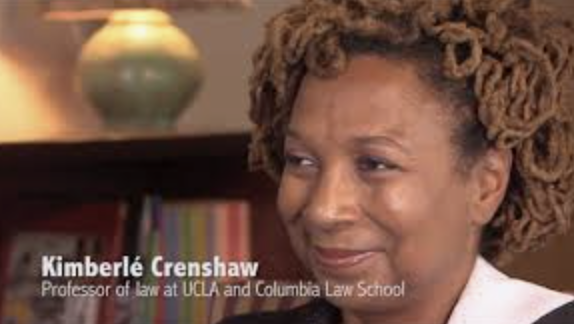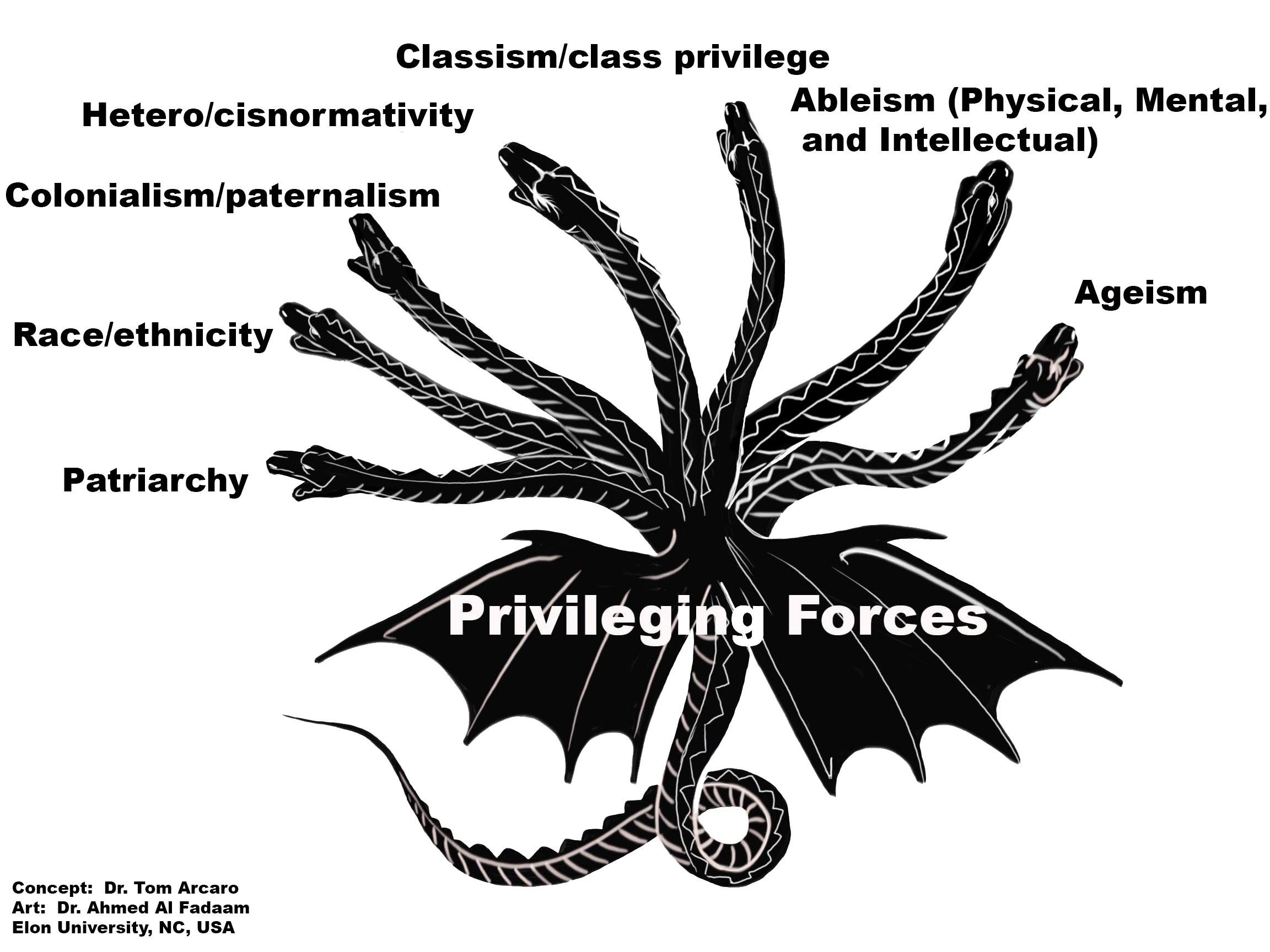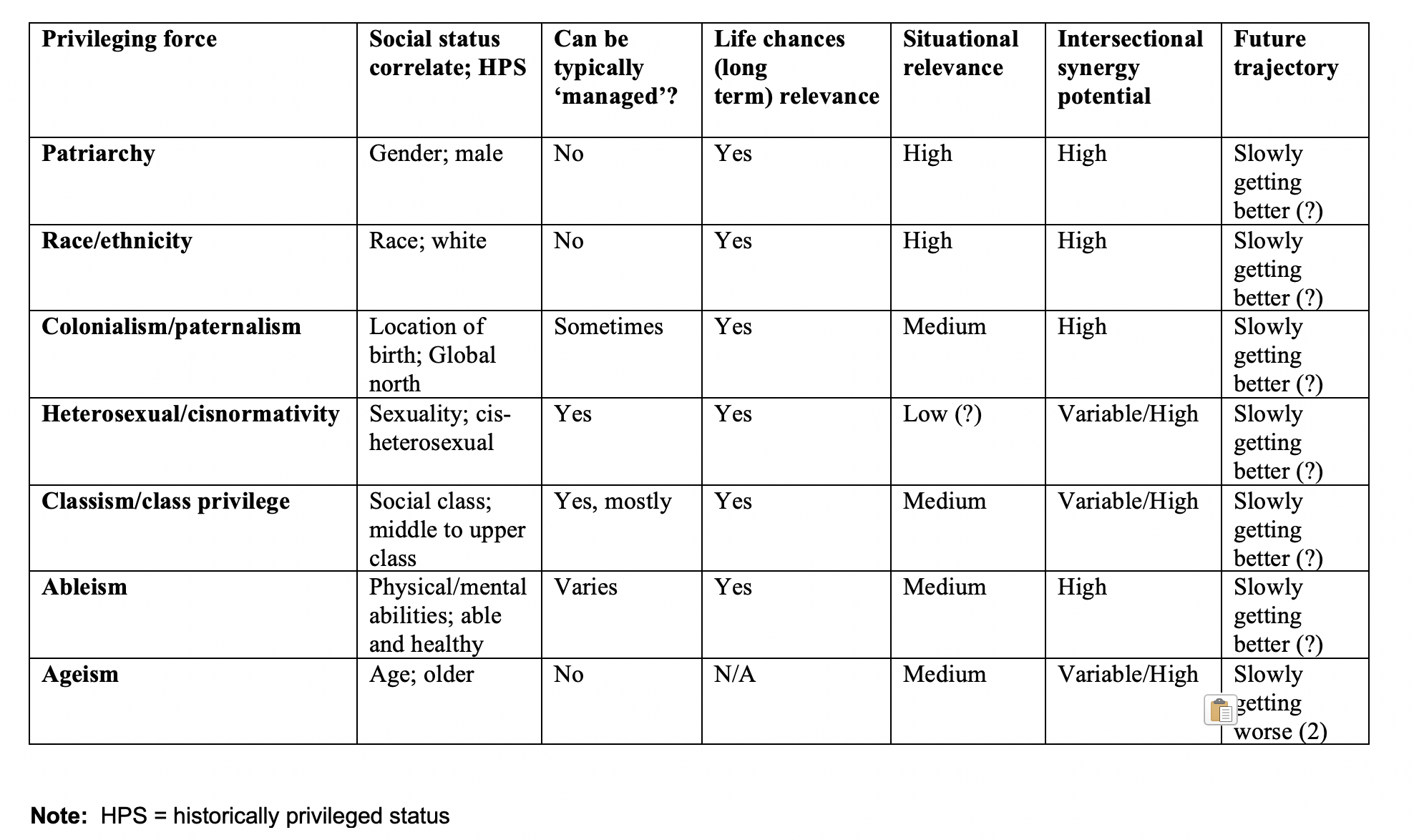[Updated and edited on 27 January 2020]
All human lives have equal worth
Humanitarian principles, however broadly defined, begin with the assertion that all human lives have equal worth. Given that premise, our challenge is to understand the social forces which are a threat to that assumption and frequently lead to humanitarian crises.
In previous posts (see here and here) I discuss how the process of ‘othering’ is universal, and throughout history has inexorably lead to the entrenchment and ossification of many ‘privileging forces’ that continue to have massive impact on all global cultures and, necessarily, impact the functioning of the humanitarian ecosystem. I argue that fighting each of these privileging forces individually may seem both necessary and logical, but that to be most effective we must, metaphorically, fight the body of the Hydra, i.e., the process of othering itself. Othering fuels the Hydra’s body and thus all of its heads.
A more just world will be achieved when we acknowledge and honor our differences and simultaneously counter all arguments (and ‘baked in’ social, political, and cultural institutions, norms, policies, and laws) that allow social status differentiation to degenerate into stratification, that is, which justify one status being privileged above another. On a conceptual level, I argue this struggle cannot be unidimensional and/or only focus on one location, situation, or issue, but rather needs to employ the concept of intersectionality. That said, it must be granted that on practical level for any individual at any one point in time, the fight for justice may specific to one head of there Hydra and also that the implementation of any changes must be incremental, specific, and local. Addressing privileging forces is neither fast nor easy. But fundamental social change never is.
Intersectionality
I take as my inspiration for this discussion the canonical 1989 article “Demarginalizing the Intersection of Race and Sex: A Black Feminist Critique of Antidiscrimination Doctrine, Feminist Theory and Antiracist Politics” by Kimberlé Williams Crenshaw. In this essay  she coins the term ‘intersectionality’ which has now taken its place among the core concepts in most discussions concerning social justice. She states,
she coins the term ‘intersectionality’ which has now taken its place among the core concepts in most discussions concerning social justice. She states,
“This focus on the most privileged group members marginalizes those who are multiply-burdened and obscures claims that cannot be understood as resulting from discrete sources of discrimination. I suggest further that this focus on otherwise-privileged group members creates a distorted analysis of racism and sexism because the operative conceptions of race and sex become grounded in experiences that actually represent only a subset of a much
more complex phenomenon.”
Her phrase ‘multiply burdened’ is apt, and a bit later in the article she explains,
“Because the intersectional experience is greater than the sum of racism and sexism, any analysis that does not take intersectionality into account cannot sufficiently address the particular manner in which Black women are subordinated.”
Our challenge is to take her phrase “…the intersectional experience is greater than the sum of racism and sexism” and add in all of the other ‘isms’ that make up the heads of the Hydra seen in this illustration.
I must add that most of what I discuss in this and my two previous posts was addressed in rich detail by sociologist Patricia Hill Collins in her 1990 book Black Feminist Thought: Knowledge, Consciousness and the Politics of Empowerment. The reader is encouraged to read both Crenshaw and Hill’s works for a better understanding of intersectionality.
encouraged to read both Crenshaw and Hill’s works for a better understanding of intersectionality.
Multiply privileged
For this post I offer a flipped view of Crenshaw’s discussion, and explore the many complexities related to the idea of ‘multiple privileges.’ At least one or more of these privileges are possessed by all humanitarians.
One exercise we can do is list our own privileges. Using myself as an example, (moving from left to right on the Hydra) I am a male, white, from the ‘Global north’, straight, living in the upper-middle class, mentally stable and physically able, and old, but not quite elderly. I am ‘status positive’ all the way around. Keeping this all very binary and allowing either a zero or 1 on each of the seven heads, my score would be a 6.5 out of 7 (I am starting the feel the subtle signs of marginalization as I near retirement). What is your total privilege?
Note: Two points. First, each of the seven privileges represented are clearly not binary, and a more thorough discussion would list each, expanding on the shades of privilege possible. Secondly, I am aware that there are other privileging forces, some general and others more culturally or situationally specific. Please bear with me as I proceed with this more narrow view.
Privilege comes from perceived social status. Considering our Hydra and the seven privileging forces illustrated (patriarchy, race/ethnicity, colonialism/paternalism, heterosexual/cisnormativity, classism/class privilege, ableism, and ageism), we can view individuals as having an array of social statues. Most social statuses are ascribed, i.e., granted at birth. Some statuses are achieved and can be earned (e.g., training or educational degrees or getting hired for a job). For all of us, both kinds of statues, ascribed and achieved, impact directly how the privileging forces act upon us during our lives.
In the eye of the beholder
Here we must include the concepts ‘master status’ and ‘identity management.’ All individuals possess an array of statuses, but in any specific social setting one status may become more important than the others, i.e., their situational ‘master status.’ Restated, one’s master status is fluid, and is relative to the specific social setting; it is what the others in the context view as your most salient feature.
For example, if you are white female in a room full of POC females, your gender may be less relevant than your race; your race is your master status in this context. Identity management is critical when examining those statuses which can be hidden or are otherwise not visually apparent. A case in point is that in many circumstances one’s sexuality can be disclosed or not disclosed as a matter of choice by the individual, that is, in some cases we are able to manage our identity with regards to those statues which are not readily apparent. Other examples are one’s religion (or lack thereof), national origin, social class, mental illnesses, etc.
Using the equation below, it is possible to give yourself a privilege score, overall and in a typical work context, based on your various statuses. An individual’s total privileging forces are a function of the intersection between one’s position vis-a-vis the various privileging forces of patriarchy, race/ethnicity, colonialism/paternalism, heterosexual/cisnormativity, classism/class privilege, ableism, and ageism. In short form, TP = f(P*R*C*H*Cl*Ab*A), where TP = total privilege, and the remaining letters in the formula represent the various heads of the Hydra. Anyones TP will vary dramatically over time with the weight given to each variable depends upon the sociocultural context.
Consider how your score changes depending upon the interactional context, even as you move from one part of your day to the next. The best we can do in any one moment is to (1) be aware of our privilege score overall, (2) understand both the immediate and longer term social contexts in which we function, (3) understand how our privileges are perceived by those with which we are interacting, (4) and work to acknowledge relative privileges and how these may impact the interactions. We must constantly ‘take the role of the other’ and imagine what they see when they see us, and most importantly, what they perceive as our master status.
Checking your privileges
Most are familiar with the concept of white privilege, and, if they present as ‘white’, know to be mindful of the privilege that comes from this status. To an equal extent, I’ll presume, most are aware of male privilege and the need to check same. As we go through the heads of the Hydra, each comes with a corresponding ‘privilege’. Hetero privilege, class privilege, able privilege, age privilege, and so on. All of these must be in the vocabulary of those wishing to be sensitive to the various privileging forces.
Perhaps the most relevant for many humanitarians is ‘Global north’ privilege. Though the majority of humanitarians globally are from the majority world (also referred to as the ‘Global south’), many work for INGOs that are (still) headquartered in the Global north, though this may be changing in part are as reaction to the Grand Bargain agreed to in 2016. Key here is understanding the importance of unit of analysis, i.e., whether one is considering the individual or the organization in which the person works.
All humanitarians need to ask of her/himself questions about status and privilege, but it is also important to think in terms of one’s organization. The reflexive question, ‘am I being paternalistic (racist, homophobic, etc.)?’ must be asked. But equally important, and in terms of sector-wide change, critical, is the question, ‘is my organization being paternalistic (etc.)?’ In the vernacular of sociology we must pay attention to both units of analysis.
Putting it all together
The table to the right offers a summary. Down the vertical axis are the privileging forces and along the horizontal are several questions that can be asked of each.
All of the cells have been filled in tentatively and with a full realization that changes will be (should be) suggested by colleagues and critics; this table is a  starting point for discussion.
starting point for discussion.
From left to right this table breaks down the Privileging forces, (1) the social status correlate to this force (and gives the historically privileged status), (2) questions whether the status can be managed, (3) assesses the long term life relevance for the individual, (4) assesses the situational relevance, (5) gauges the ‘intersectional synergy potential’, and finally (6) makes a projection as to the future prospects are for social change to minimize or eliminate each privileging force.
Keeping in mind Crenshaw’s point that each force does not simply add on to the others but rather interacts and creates a multiplicative effect, the ‘intersectional synergy potential’ is the category which cries out for more clarification and explication, perhaps in another post.
As for the future trajectory, the most desired outcome is that in the future, once we have fully understood and defused the process of othering, all of these privileging forces will be neutralized.
All of the above are draft ideas, not ready for prime time; just the opposite. I offer these thoughts hoping that others will actively critique the scheme I have proposed. And that is how productive discussions evolve: dialectically and through back and forth discussion.Thesis generates antithesis, and the tension created yields a synthesis which itself may generate a new antithesis and subsequent new syntheses. Iterative dialogue is critical, vital, and the only productive pathways forward.
Humanitarian principles and intersectionality
Above I have argued a fairly obvious point, namely that humanitarian principles begin with the assumption that all lives have equal value and that the process of othering gives rise to an array of privileging forces which are inherently anti-humanistic/humanitarian. Most humanitarians are ‘multiply privileged’ and thus face a challenge regarding how to be proactive in first understanding their statuses and then in addressing this power asymmetry in their actions (1) as individuals, colleague to colleague and (2) when interacting with the beneficiary community. Humanitarians must also be keenly aware of the power differentials between their organization and the organizations with which they work, and that, if working for a Global north based INGO (or other organization, e.g., UN), their master status may be at times that of ‘INGO official.’
Mindful progress forward addressing all of the heads of the Hydra means addressing the entire othering process, not an easy or simple job for those with high overall privilege scores. I suggest we all take lessons from those with lower overall privilege scores, making a special effort to learn from those like Kimberlé Crenshaw hailing from the academic world and, better yet, from those within their own organizational ranks.
This is a work in progress. Feedback, comment, and critique are welcome. Contact me at arcaro@elon.edu.


 Follow
Follow